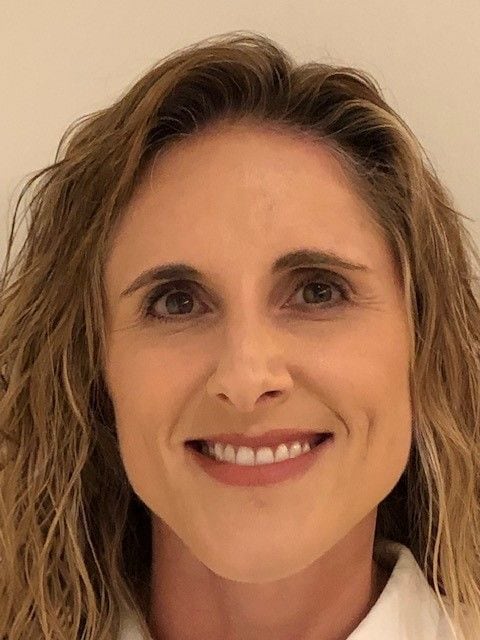
Child support’s integration imperative Improving outcomes for families
8 minute read
17 September 2020
 Tiffany Fishman United States
Tiffany Fishman United States Margot Bean United States
Margot Bean United States Jamia McDonald United States
Jamia McDonald United States Ashley Dexter United States
Ashley Dexter United States
With caseloads on the decline, child support programs are reevaluating how they deliver services, and what services to deliver.
If you look at the macroeconomic data, the US economy seems to be in great shape. Unemployment stands at a 50-year low, with more Americans employed than ever before.1
Learn more
Explore the HHS Innovator's Playbook
Explore the Government & public services collection
Learn about Deloitte's services
Go straight to smart. Get the Deloitte Insights app
But ask job seekers about the economy, and many will paint a different picture: Prolonged job searches. Low pay. Juggling multiple jobs to pay the bills. Unpredictable hours that make it hard to arrange for child care.
In short, the economic data tells one story, while the lived experience of many Americans tells another. What explains this discrepancy?
“The problem is that the quality of the stock of jobs on offer has been deteriorating for the last 30 years,” explains Dan Alpert, a Cornell Law School professor who helped create the US Private Sector Job Quality Index (JQI), a monthly indicator that measures the quality of the jobs on offer by calculating the ratio of higher-wage/higher-hour jobs to lower-wage/lower-hour jobs.2 As of January 2020, the JQI was 82.68, which means there are roughly 82 “high-quality” jobs for every 100 “low-quality” ones. That’s a marked decline from the prerecession ratio of 90.3
If you examine the Temporary Assistance for Needy Families (TANF) program, you’ll see a similar split between the data and actual experience. TANF has fewer caseloads today than in any year since the program was created. Between 2006 and 2017, most states saw their TANF caseloads decline by more than 20 percent.4
“Across the country, we’ve seen TANF caseloads drop to their lowest levels ever,” observes David Stillman, assistant secretary of the Economic Services Administration (ESA) in Washington State's Department of Social and Health Services (DSHS) and former Division of Child Support director for the state. “Some of that, of course, has to do with a good economy.”5
But that isn’t the whole story. Many individuals who no longer qualify for TANF still cannot afford basic necessities. According to Stillman, “People have to be truly impoverished to be eligible for TANF, but that doesn’t mean that someone who’s receiving Supplemental Nutrition Assistance Program (SNAP) benefits isn’t struggling.”6
As TANF caseloads have declined, so too have child support caseloads. That’s because the child support program has traditionally received most of its referrals from TANF and Medicaid. Since participation in the child support program is higher among low-income families, the decline in numbers of automatic referrals from the TANF caseload has an acute impact on families struggling to make ends meet.7
The assumption that all noncustodial parents (NCPs) will find jobs that pay well enough to support both themselves and their children makes far less sense today than when the child support program was created in 1975, particularly in light of the long-term decline in the quality of jobs being created.8 When parents have insufficient income, no number of reminders or threats of legal action, including jail, can make them come up with regular payments or dig their way out of arrears.
All of these factors have led an increasing number of child support programs to reevaluate how they deliver services, and what services to deliver, with a focus on:
- Elevating the human experience
- Experimenting with more holistic approaches
- Using “big hairy audacious goals” to help bring stakeholders to the table9
Here we examine a number of promising approaches states are pursuing.
Elevating the human experience
What is it like to interact with multiple public assistance programs? A client visits one program, answers a series of lengthy and often intrusive questions, proceeds to another program and answers similar questions, then goes on to a third and repeats the process. Not only can this wear clients out, but it can also serve to retraumatize them each time they have to reveal the circumstances that led them to seek assistance.
Sometimes this siloed program delivery causes direct conflict. Child support might schedule a court hearing for a client at the same time TANF schedules a work program course. Or child welfare might work toward reunification with the family while child support tries to establish a court order.
“To the extent that we build systems and service delivery pathways in ways that are segregated, we’re really missing the opportunity to help the whole family and to put the child first,” observes Stillman.10
During the Great Recession, many states moved to transaction-based systems for processing caseloads. This helped them meet huge spikes in demand for public assistance even as state budget cuts forced them to cut staff. While highly efficient and effective, transaction-based systems have inadvertently undermined the human relationship, distancing caseworkers from clients.
Some child support programs today are working to make interactions with agencies less exhausting and frustrating for clients, and to help agencies connect with clients on a more human level.
Take Washington State’s Transforming Case Management initiative. “Part of transforming case management is rooted in the idea that we want to listen to our clients and our staff about how we should go about doing our work,” explains Stillman. DSHS is implementing “deskside orientations” to perform intake in a warmer and more client-centered way. It is also beginning to stop handing clients paper referrals to community partners. Instead it seeks to make “warm handoffs,” connecting clients to services they need, exactly when they need them. To achieve this, the DSHS Community Services Division is implementing an approach that tailors the information-gathering approach to the needs of individual clients. It’s also working with community partners to make sure they are ready, willing, and able to receive the warm handoffs.11
In North Carolina, Mecklenburg County uses strategically located community resource centers to provide integrated health and human services to residents. The centers bring SNAP, Medicaid, TANF, emergency assistance, child support, veterans services, Women, Infants, and Children (WIC) services, immunizations, care coordination for children, and pregnancy care management under one roof. A client who arrives at one of these facilities gets a personal greeting and checks in electronically, with no need to wait in line. The centers also offer child care services. Cross-service coordination, expedited processes for simple transactions, and access to partner agencies all help get clients in and out quickly, while seeing everyone they need to see in one warm and inviting stop. From the strategic location to the welcoming design of the centers, the goal, explains Rodney Adams, director of the Department of Community Resources in Mecklenburg County, “is to become part of the community.”12
Experimenting with more holistic approaches
To help achieve the deeper goals of keeping children out of poverty and strengthening families, many child support programs are setting their sights beyond collection, adding job and life skills training programs.
For instance, Colorado’s Department of Human Services’ Division of Child Support Services (CSS) has partnered with counties across the state to transform its child support program from traditional enforcement to a family-centered, multigenerational approach called “2Gen.” The goal is to grow family incomes by giving custodial parents and NCPs the employment services and tools they need to improve the long-term well-being of their children.
This is important, explains CSS Director Larry Desbien, because 30,000 families with child support orders receive no financial support each month. That’s despite an unemployment rate of 2.5 percent, well below the national average. The 2Gen family resource assessment found that 86 percent of NCPs in those families had criminal records, 68 percent faced transportation barriers, and 36 percent had other barriers to work, all reducing the NCP’s ability to pay child support.13
While it’s still early days, the initial results from one of the 11 counties that has fully implemented the 2Gen model show better child support payment rates and employment rates. NCPs who participated in 2Gen paid a higher average percentage of their child support obligations and did so more frequently than those in the control group. They were also more likely to be employed at the end of the study.14
Additionally, child support agencies in Michigan, New York, Ohio, and Washington are participating in the Families Forward Demonstration project, which offers targeted skill-building activities to help low-income NCPs and custodial parents qualify for better-paying, high-demand jobs in their local labor market. The ultimate goal of the project is to identify successful employment approaches that can be integrated into child support programs across the country to improve the financial welfare of NCPs, increasing their ability to support their children.15
Using big hairy audacious goals to help bring stakeholders to the table
Big hairy audacious goals (BHAGs for short) are a powerful mechanism for stimulating progress toward an ambitious target—think NASA’s original moon mission.
In the human services world, Washington State’s ESA has set its own BHAG: to reduce the number of residents living in poverty by 50 percent by 2025 in a way that eliminates disparity.16
ESA committed to this goal because leaders knew that incremental improvements weren’t enough, Stillman says. “If you’re going to achieve a goal as big as that, it can’t just be TANF or SNAP or child support that will make that happen.”17 All possible stakeholders must come to the table: community and technical colleges, child welfare, K-12 education, the department of health, the department of corrections, the attorney general’s office, state legislators, and others. Most importantly, participants must make space at the table for people who actually live in poverty, not just as token voices but as authorities on the experience to help drive the conversation and decision-making.
“It was more about forcing us to create a forum that would demand of us more than just a token effort at collective impact,” Stillman says. “And that has been an extraordinary success.” Five years out from 2025, the state is on track to reach its interim goal of reducing poverty by 20 percent in 2020. While Stillman attributes much of that improvement to the state’s economic health, the initiative’s diverse set of stakeholders has already devised a comprehensive set of recommendations about how to holistically achieve ESA’s BHAG.18
The path forward
As more states consider how to integrate child support with other public assistance programs, they should factor in a number of variables. Two variables are particularly important: the intersection of child support with other programs, and the complexity of the data-sharing environment.
The child support program intersects with many other human services programs, potentially creating both positive and negative impacts. For example, research shows that receipt of child support reduces the risk of child abuse and neglect. Mothers who receive child support are less likely to have a “screen-in maltreatment report” than mothers who don’t.19 On the other hand, newly established child support orders are associated with children spending a longer time in foster care.20 States need to unpack and understand such nuances as they develop their integration approaches.
Data sharing can be complicated for child support agencies when different programs are governed by different legislation. As Stillman explains, “While there are ways to share data, whether it’s by consent or other means, including leveraging and maximizing the ways systems talk to one another, the truth of the matter is that the authorizing legislation for each and every one of our programs is completely different.”21 Whether it’s the Social Security Act, the Health Insurance Portability and Accountability Act, the Family Educational Rights and Privacy Act, or other legislation, each law uses different language about how to safeguard data and keep it confidential, making the rules extremely difficult to harmonize. Until federal legislation specifies what data must be shared and how it must be protected, states will have to devote administrative resources trying to chart a path forward to enable data sharing among different programs.
Throughout its history, the child support program has adapted successfully to changing circumstances. To sustain this success, the program must continue to evolve. The welfare of millions of children depends on the ability of child support agencies to deliver the best possible service.
Explore the HHS Innovator's Playbook
-
Transformational health and human services Article4 years ago
-
AI-augmented human services Article4 years ago
-
Charting new pathways Article4 years ago
-
The case for a youth portal Article4 years ago
-
Mindful Medicaid Article7 years ago














